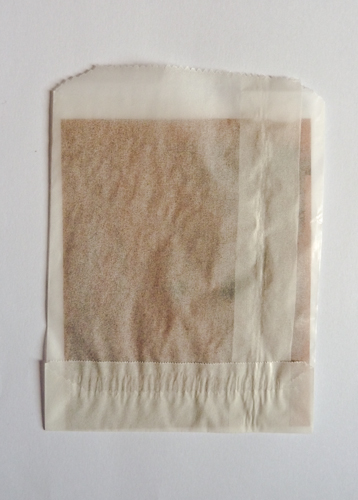Time really does fly by doesn’t it?
Soapbox Press are now just over a year old, gosh blimes. It was, quite amazingly, a year since we were planning our first book, the Winchester Journals. As a year roles around we are now in reflection of the creation of the Winchester Journals and how it came about.
So what has this got to do with the interview series I hear you asking? Well, I thought it’d be a good idea to ask a few questions to Christina Neill- Griffin, one of the outstanding contributors to the first book. What has been happening post –graduation and did the feature of being in a published book help with any life direction decisions? Let’s find out.
Nicola Manuel: Hello you! Long time no speak. How has life after graduation been going?
Christina Neill-Griffin: Hey Nic, wow graduating feels like a lifetime ago, and yet no time at all. I think I have been lucky, everything is going well thank you.

NM: Having graduated with a BA (Hons) you are now applying your creativity within a MFA in the University of the Creative Arts in Farnham. How do the two differ from one another? Are there any significant differences?
CN-G: I guess the key difference is having more independence, with a BA you have briefs to fulfill, but the MFA is me following my own interests.
NM: How has being incorporated with the Winchester Journals and featuring as a writer changed your way of thinking? Does the written language appear much more within your work now?
CN-G: I always loved the theory behind the work, but I never really considered that it could be more than just a personal knowledge. The Journals gave me an outlet to express my artistic opinion on the theory, which I hadn’t done before, and now I’m finding that I do that with more confidence. I do a bit of lecturing to small groups sometimes, when I am invited to, and having written for the Winchester Journals it stirred my passion to share that knowledge and the enthusiasm that I felt. I’m sure we have all been to events where your eyes glazed over and you’ve thought ‘what are they droning on about’; the first night I spoke about the theory behind work, I hoped I wasn’t like that. But, I had people come up to me afterwards and tell me how inspired they felt to go out and produced new images, which is a truly amazing feeling.
NM: Could you explain a little about your article ‘Absence and Presence with Photography; Philosophising on the presence witnessed by the viewer in the absence of a human form in a photograph’ and whether your opinion has altered since writing it?
CN-G: In some ways it developed from a self indulgent moment of philosophising, we all know the philosophical thought experiment ‘if a tree falls in the forest, and no one is around to hear it, does it make a sound?’ In photography, as with life you have to be there to see it, and my article really was an examination of my thoughts associated with that. For example, the action of choosing which moment to press the shutter, what you include or even exclude from the frame of view, leaves a trace of you, so unless you get a robot to take a photograph, based on a strict set of criteria, there is always presence in a photograph, you just need to look beyond the obviously missing face, or human being form.
So, really, no my opinion hasn’t changed, I believe there is a real beauty in admiring the presence of some who is absent visually from the photograph you are looking at. I guess you could term it a respect for the effort of the process, from the builders or craftsman who constructed what you look at, the photographer, and the printer – there is a beauty in human details and connections.

NM: Have you continued to use the form of the written language to date apart from within your own work?
CN-G: I wish I had, most of it has been for my own work really, I keep meaning to send some articles into publishers and test out what they think, other things seem to come up and get in the way. Coming straight out of a BA you can feel like a small fish in a big pond. But it’s on my to do list 😉 as something I really want to invest more time in doing.
NM: What words of advice would you give to a keen writer who didn’t know where to start?
CN-G: Don’t tackle the world in one, find a subject that interests you, even if it feels small and write about it. If you are passionate about what you are writing, others will enjoy reading it!
And, read, read as much as you can, find a published writer whose style you enjoy; then rewrite a favourite paragraph in their style, using your own story.
NM: You mentioned a while back that you’ve been able to share your knowledge with fellow students, and refer to alumni work and the projects of others at WSA in your own and others work. In what situations have you been able to do this?
CN-G: Yes, knowing the subjects and artists that my fellow students were investigating at WSA, especially during their final major projects, has really broadened my own knowledge. In the last few months I have attended some research seminars in London, and was able to discuss the work of several friends there, referencing their work directly, as well as some of their references. Also, my knowledge of their work and abilities has been of benefit in my own work, allowing me to pass on that knowledge in crits and discussions, to my new fellow students. It’s amazing to realise how much you pick up along the way, by discussing each other’s interests and projects, and it’s great to promote my fellow graduates work.

NM: To the new set of third year writers who are just starting their reflective journal, what words of advice would you give to them?
CN-G: I know I wasn’t the only one who left it to the last minute – if you can avoid that it is less stress, but write from your heart about what interests you. It’s reflections on your take of research and theory – if you justify your opinion with good reasons, and look at both sides of the arguments before your conclusion, you can’t be wrong. Besides, once it’s handed in – you may plan to go to the pub… but plan to do that in the evening, so you can get a few hours sleep first, or better convince everyone to come round yours and bring the beer with them. (Good luck!)
Time for those quick round questions… If I were to say the following word to you, you would say which word in response.
Writing? Passion, a way to express my thoughts, and something I’m working towards sharing more.
Photography? Still the greatest pleasure I get is from seeing the negative, just as I want it – I’m old school.
MA? Hard work but amazing, a whole new level.
BA? Brilliant experience, great friends, the only thing I would change is living 15 miles from campus, without a car… too many missed parties!
Absence? Presence, of course – and read the Winchester Journals… you’ll see why I think so, lol – Thanks Nic!
Writing doesn’t need to be a tough end to a module. Reflect on what you’ve gathered and express those opinions of yours. Through Chris’ experience, writing helped to strengthen her mode of thinking – so why not yours?

[…] https://soapboxpress.wordpress.com/2013/03/07/christina-neill-griffin/ […]